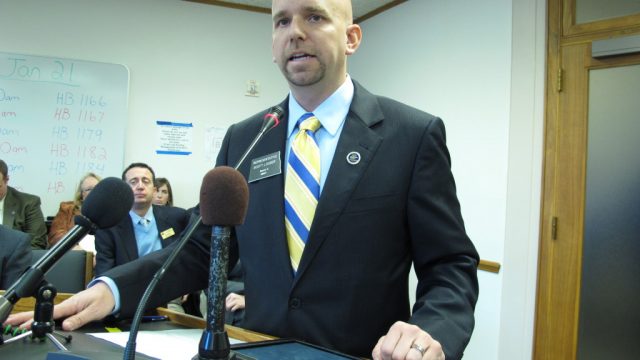Should North Dakota Get Rid Of The Income Tax?

The Associated Press today reports that a “North Dakota lawmaker wants no state income tax.”
Of course, SAB readers knew about Rep. Scott Louser’s plan to take the income tax down to zero way back in September when he wrote about it for the blog.
“The proposal I’ve prepared for next session does not call for the elimination of the personal income tax, but it does take the rate to zero percent,” he wrote. “This is not a suspension, nor is it a trial. The legislature has succeeded in the past few biennia in reducing income tax rates and this is the same process as has been used in the past.”
Louser’s bill may not be alone in attempting to rid North Dakotans of income tax burdens. In addition to bills to further cut, though not eliminate, rates I’m told there will also be legislation to remove the income tax code from state law entirely.
What’s more, my good friend Jay Thomas of WDAY AM970 (for whom I am a frequent guest and guest host) is promising that if lawmakers don’t eliminate the income tax in this session he’ll seek to organize a petition drive to put the issue on the ballot in 2016.
But there’s going to be opposition. Some will come from those who are fond of that old saw about North Dakota taxes being a “three legged stool,” which is a political triangulation trotted every time we talk about cutting or eliminating taxes. It supposes that the reduction or elimination of one tax would only make the stool “wobbly” by requiring the increase of another tax.
State Senator Dwight Cook, chairman of the Finance and Taxation committee, trots it out for the Associated Press:
North Dakota’s general fund is financed mostly by taxes on income, sales and energy. It’s uncertain if the state can operate on “on a three-legged tax stool that has one less leg,” Cook said of the income tax, which provides about 15 percent of the general fund.
“In my mind, tax policy has to have certainty,” he said. “The price of oil will have a lot to do with everything we do this session.”
The other big obstacle for income tax reform will come from those still hung up on property taxes. The state had a bitter debate over eliminating property taxes in 2012, when a constitutional measure on the June ballot failed by a wide margin, but dissatisfaction with property taxes has been a major issue in every legislative session since 2015. The legislature has responded with reforms in how the tax is levied, and buy-downs of local property taxes paid for out of the state’s oil-driven revenue gusher, but unhappiness lingers.
My sense is that the property tax malcontents will fight efforts to address the income tax.
Still, there seems to be more momentum behind eliminating the income tax in this session than ever before.




